Emma Watson Insists Feminism Is Not 'Man Hating' in Inspiring Speech
She received a standing ovation.
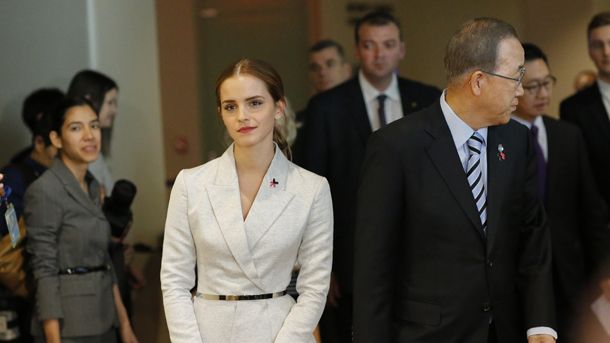
"Why this Harry Potter girl? What is she doing at the UN?" Emma Watson posed in jest during her most recent speech as a UN Women Global Goodwill Ambassador. "All I know is that I care about this problem and I want to make this better. And having seen what I've seen and given the chance, I feel my responsibility to say something."
On the heels of Watson's visit to Uruguay's General Assembly, where she commanded a room while campaigning for higher representation of women in politics, the actress traveled to New York to launch the HeForShe campaign, which calls upon men and boys to advocate on behalf of gender equality.
Perhaps the most conspicuous takeaway from Watson's impassioned, standing ovation-warranting speech was her pushback on feminism as "an unpopular word," and assertion that liberating men from stereotypes will ultimately benefit women. She drove the point home that feminism is not "man hating" and that the "us vs. them" disposition must be eliminated to acheive social equality.
"I have realized that fighting for women's rights has too often become synonymous with man-hating," Watson said. "If there is one thing I know for certain, it is that this has to stop. For the record, feminism by definition is: 'The belief that men and women should have equal rights and opportunities. It is the theory of the political, economic, and social equality of the sexes.'"
True to form, Watson donned a posh look to match her powerful stance wearing an asymmetrical Dior Resort 2015 grey silk dress coat accentuated by a sleek silver belt paired with understated black pumps. Watch Watson deliver the speech and read the entire transcript, below:
"Today we are launching a campaign called "HeForShe." I am reaching out to you because I need your help. We want to end gender inequality—and to do that we need everyone to be involved.
This is the first campaign of its kind at the UN: we want to try and galvanize as many men and boys as possible to be advocates for gender equality. And we don't just want to talk about it, but make sure it is tangible.
Stay In The Know
Get exclusive access to fashion and beauty trends, hot-off-the-press celebrity news, and more.
I was appointed six months ago and the more I have spoken about feminism the more I have realized that fighting for women's rights has too often become synonymous with man-hating. If there is one thing I know for certain, it is that this has to stop.
For the record, feminism by definition is: "The belief that men and women should have equal rights and opportunities. It is the theory of the political, economic and social equality of the sexes."
I started questioning gender-based assumptions when at eight I was confused at being called "bossy," because I wanted to direct the plays we would put on for our parents—but the boys were not.
When at 14 I started being sexualized by certain elements of the press.
When at 15 my girlfriends started dropping out of their sports teams because they didn't want to appear "muscly."
When at 18 my male friends were unable to express their feelings.
I decided I was a feminist and this seemed uncomplicated to me. But my recent research has shown me that feminism has become an unpopular word.
Apparently I am among the ranks of women whose expressions are seen as too strong, too aggressive, isolating, anti-men and, unattractive.
Why is the word such an uncomfortable one?
I am from Britain and think it is right that as a woman I am paid the same as my male counterparts. I think it is right that I should be able to make decisions about my own body. I think it is right that women be involved on my behalf in the policies and decision-making of my country. I think it is right that socially I am afforded the same respect as men. But sadly I can say that there is no one country in the world where all women can expect to receive these rights.
No country in the world can yet say they have achieved gender equality.
These rights I consider to be human rights but I am one of the lucky ones. My life is a sheer privilege because my parents didn't love me less because I was born a daughter. My school did not limit me because I was a girl. My mentors didn't assume I would go less far because I might give birth to a child one day. These influencers were the gender equality ambassadors that made who I am today. They may not know it, but they are the inadvertent feminists who are. And we need more of those. And if you still hate the word—it is not the word that is important but the idea and the ambition behind it. Because not all women have been afforded the same rights that I have. In fact, statistically, very few have been.
In 1997, Hilary Clinton made a famous speech in Beijing about women's rights. Sadly many of the things she wanted to change are still a reality today.
But what stood out for me the most was that only 30 per cent of her audience were male. How can we affect change in the world when only half of it is invited or feel welcome to participate in the conversation?
Men—I would like to take this opportunity to extend your formal invitation. Gender equality is your issue too.
Because to date, I've seen my father's role as a parent being valued less by society despite my needing his presence as a child as much as my mother's.
I've seen young men suffering from mental illness unable to ask for help for fear it would make them look less "macho"—in fact in the UK suicide is the biggest killer of men between 20-49; eclipsing road accidents, cancer and coronary heart disease. I've seen men made fragile and insecure by a distorted sense of what constitutes male success. Men don't have the benefits of equality either.
We don't often talk about men being imprisoned by gender stereotypes but I can see that that they are and that when they are free, things will change for women as a natural consequence.
If men don't have to be aggressive in order to be accepted women won't feel compelled to be submissive. If men don't have to control, women won't have to be controlled.
Both men and women should feel free to be sensitive. Both men and women should feel free to be strong… It is time that we all perceive gender on a spectrum not as two opposing sets of ideals.
If we stop defining each other by what we are not and start defining ourselves by what we are—we can all be freer and this is what HeForShe is about. It's about freedom.
I want men to take up this mantle. So their daughters, sisters and mothers can be free from prejudice but also so that their sons have permission to be vulnerable and human too—reclaim those parts of themselves they abandoned and in doing so be a more true and complete version of themselves.
You might be thinking who is this Harry Potter girl? And what is she doing up on stage at the UN. It's a good question and trust me I have been asking myself the same thing. I don't know if I am qualified to be here. All I know is that I care about this problem. And I want to make it better.
And having seen what I've seen—and given the chance—I feel it is my duty to say something. English statesman Edmund Burke said: "All that is needed for the forces of evil to triumph is for enough good men and women to do nothing."
In my nervousness for this speech and in my moments of doubt I've told myself firmly—if not me, who, if not now, when. If you have similar doubts when opportunities are presented to you I hope those words might be helpful.
Because the reality is that if we do nothing it will take 75 years, or for me to be nearly a hundred before women can expect to be paid the same as men for the same work. 15.5 million girls will be married in the next 16 years as children. And at current rates it won't be until 2086 before all rural African girls will be able to receive a secondary education.
If you believe in equality, you might be one of those inadvertent feminists I spoke of earlier.
And for this I applaud you.
We are struggling for a uniting word but the good news is we have a uniting movement. It is called HeForShe. I am inviting you to step forward, to be seen to speak up, To be the he for she. And to ask yourself if not me, who, if not now when.
Thank you."
Related:
Emma Watson Demands Higher Representation of Women in Politics
Emma Watson Laughs to Support Turkish Women
Emma Watson Named Goodwill Ambassador for U.N. Women
Lauren Valenti is Vogue’s former senior beauty editor. Her work has also appeared on ELLE.com, MarieClaire.com, and in In Style. She graduated with a liberal arts degree from Eugene Lang College, The New School for Liberal Arts, with a concentration on Culture and Media Studies and a minor in Journalism.
-
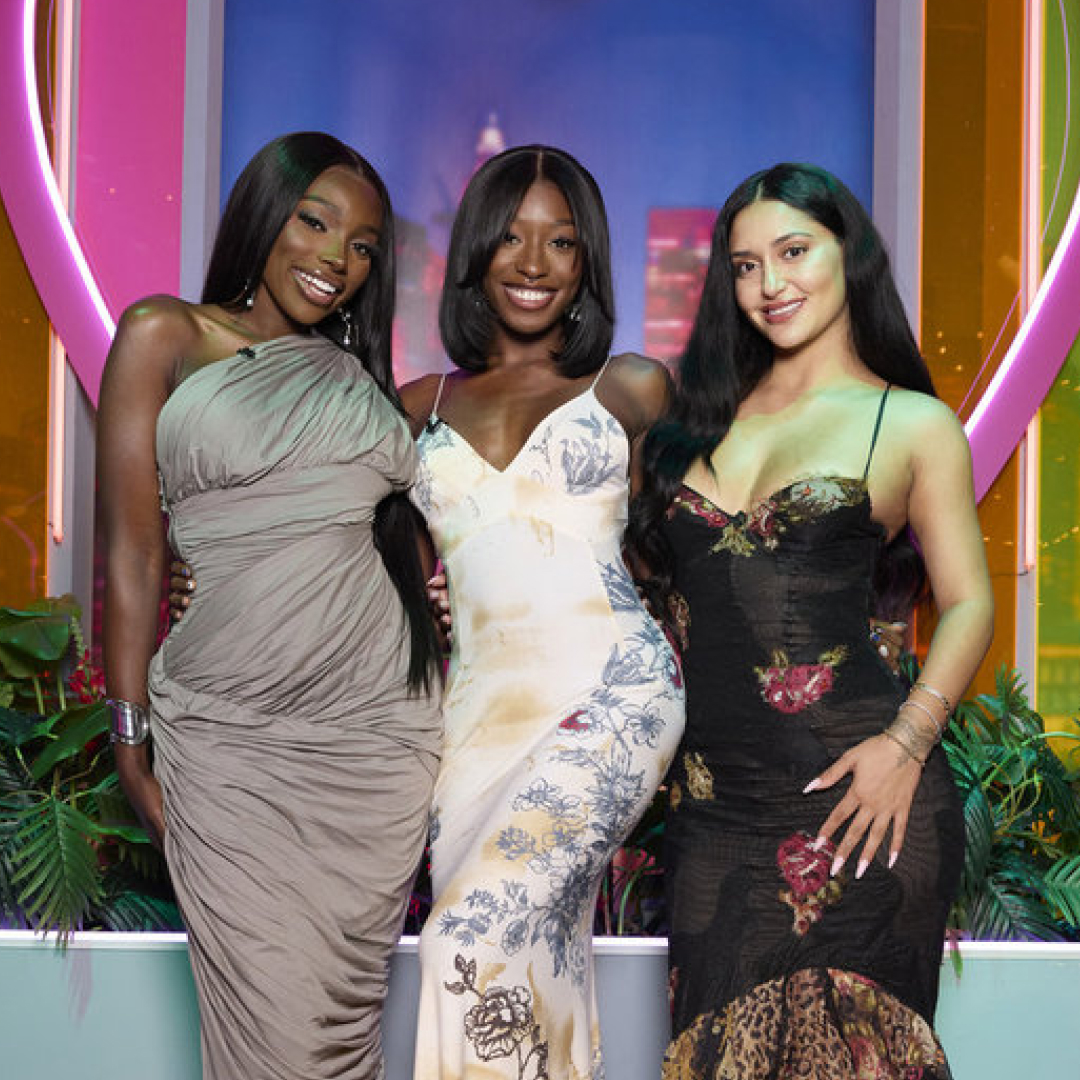 Let's Go, PPG, Fans! A New Peacock Series Starring the 'Love Island USA' Season 6 Cast Is Coming Soon
Let's Go, PPG, Fans! A New Peacock Series Starring the 'Love Island USA' Season 6 Cast Is Coming SoonWe're already clearing our summer schedules for 'Love Island: Beyond the Villa.'
By Quinci LeGardye
-
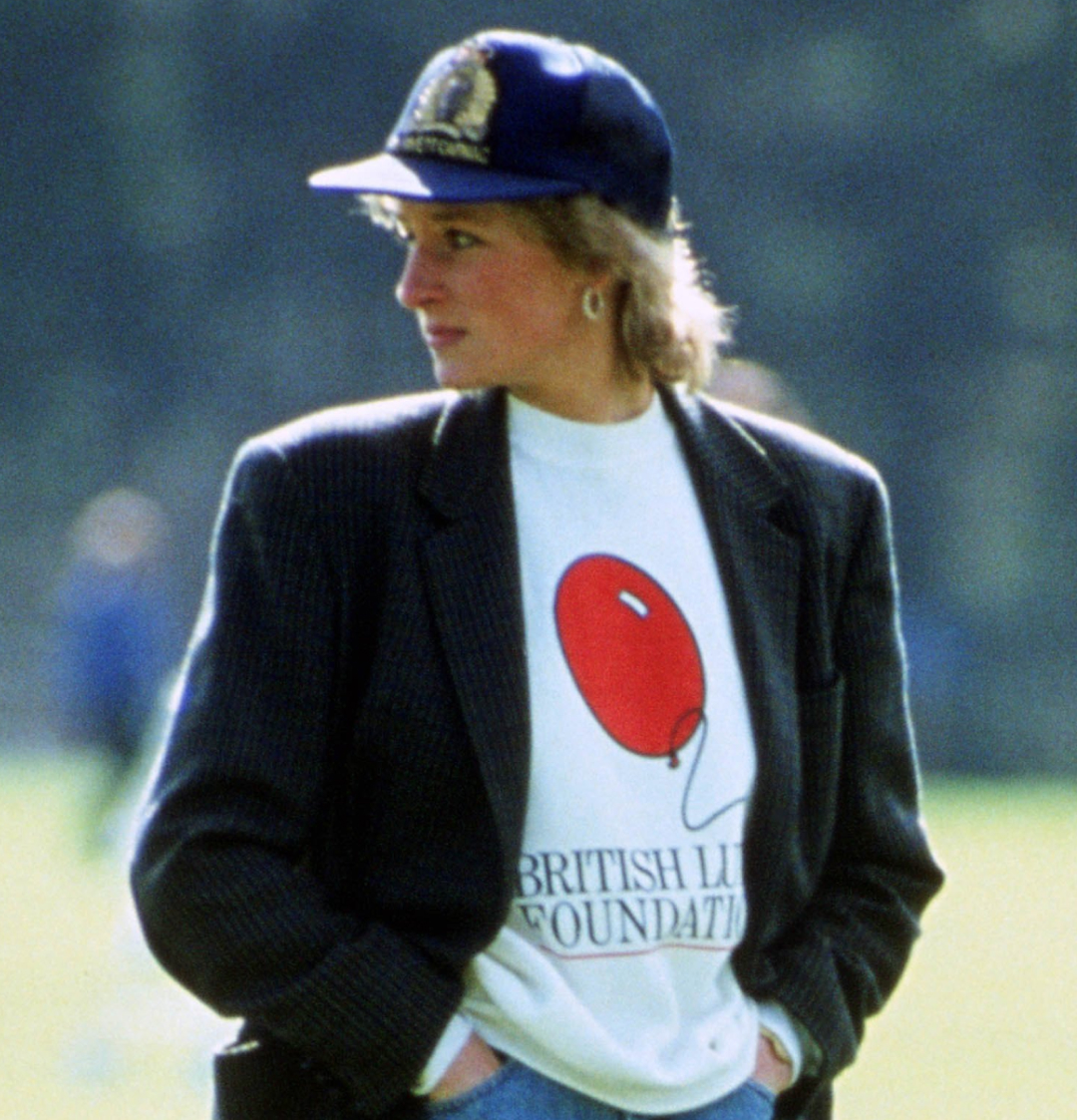 Why Princess Diana Didn't Move to America
Why Princess Diana Didn't Move to AmericaThe late royal's friend opened up about the princess's American dream.
By Kristin Contino
-
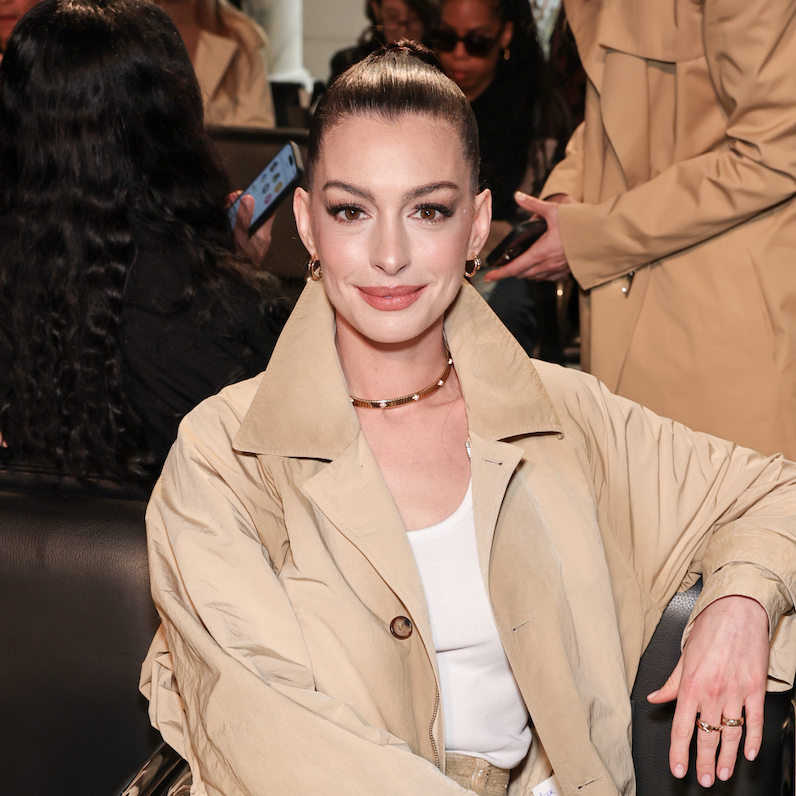 Anne Hathaway Doubles Down on Luxury's Favorite Neutral
Anne Hathaway Doubles Down on Luxury's Favorite NeutralShe painted herself in the timeless hue.
By Kelsey Stiegman
-
 36 Ways Women Still Aren't Equal to Men
36 Ways Women Still Aren't Equal to MenFeatures It's just one of the many ways women still aren't equal to men.
By Brooke Knappenberger
-
 Her Love of Basketball Left Her Stateless
Her Love of Basketball Left Her StatelessOne athlete’s quest for freedom from Afghanistan, where the Taliban's restrictive and regressive policies on women's sports put her life in danger.
By Abigail Pesta
-
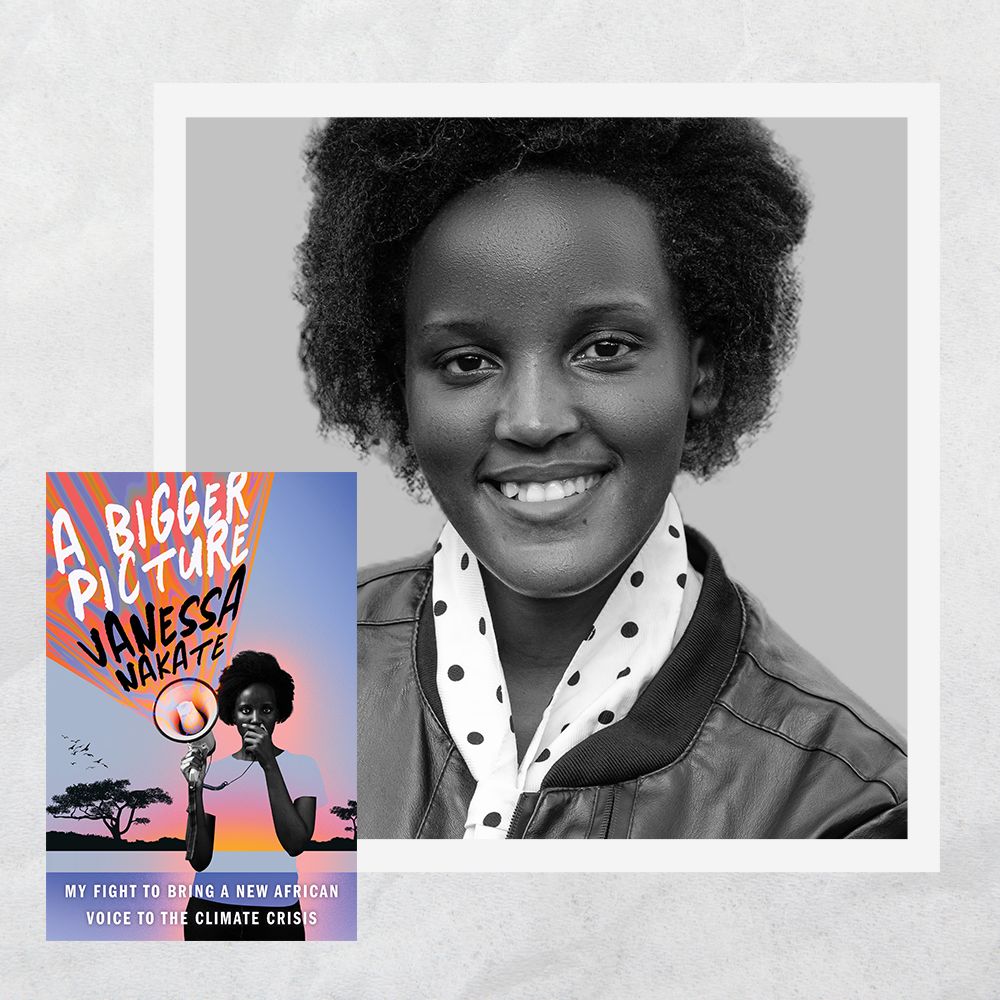 Education for Women and Girls Is Crucial for Climate Justice
Education for Women and Girls Is Crucial for Climate JusticeIn an excerpt from her new book, 'A Bigger Picture,' Ugandan climate activist Vanessa Nakate discusses the impact educated African women and girls can have on solving the climate crisis.
By Vanessa Nakate
-
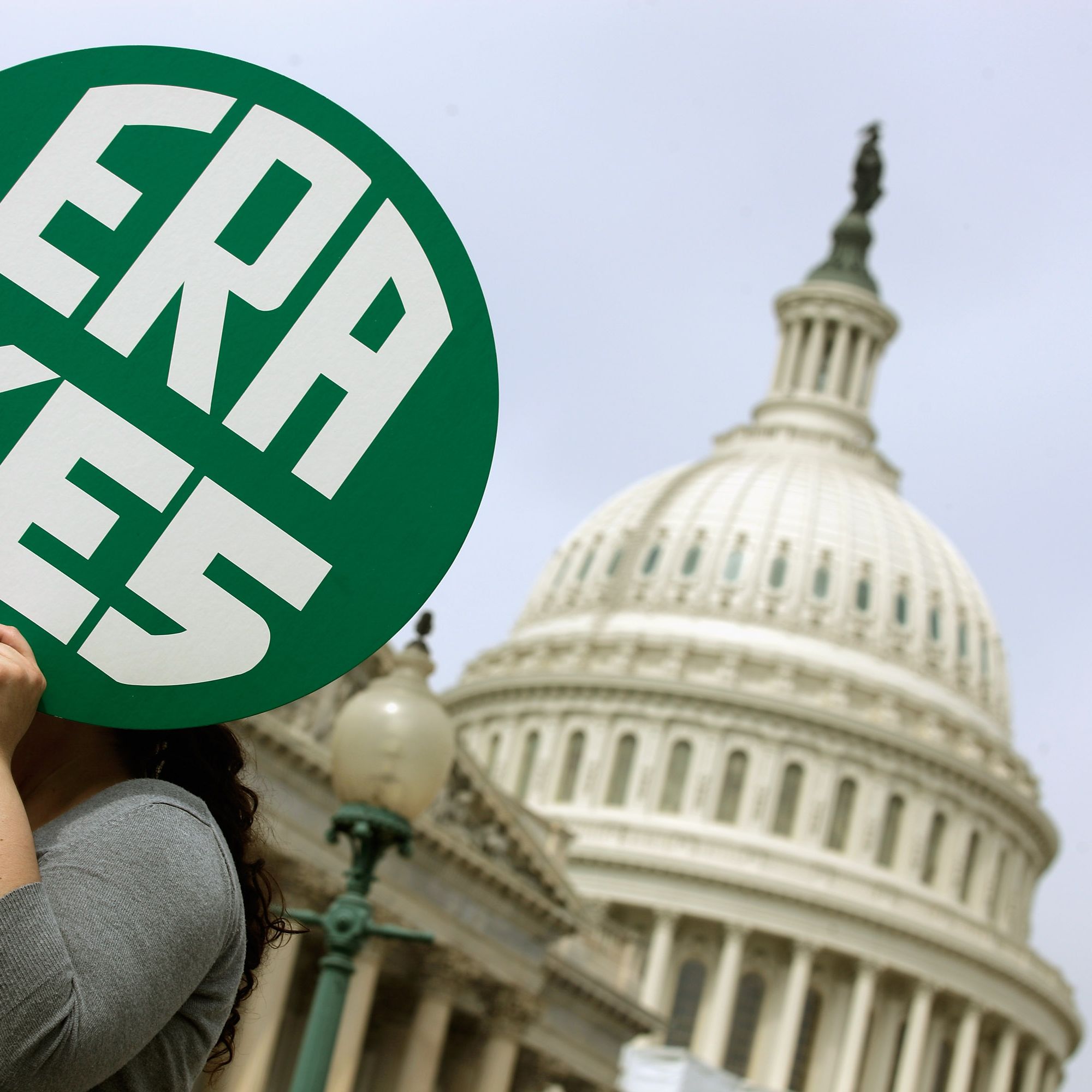 It’s Time to End Equal Pay Days and Pass the Equal Rights Amendment
It’s Time to End Equal Pay Days and Pass the Equal Rights AmendmentThe passage of the ERA is a chance for our country to prove it truly values women.
By Hala Ayala
-
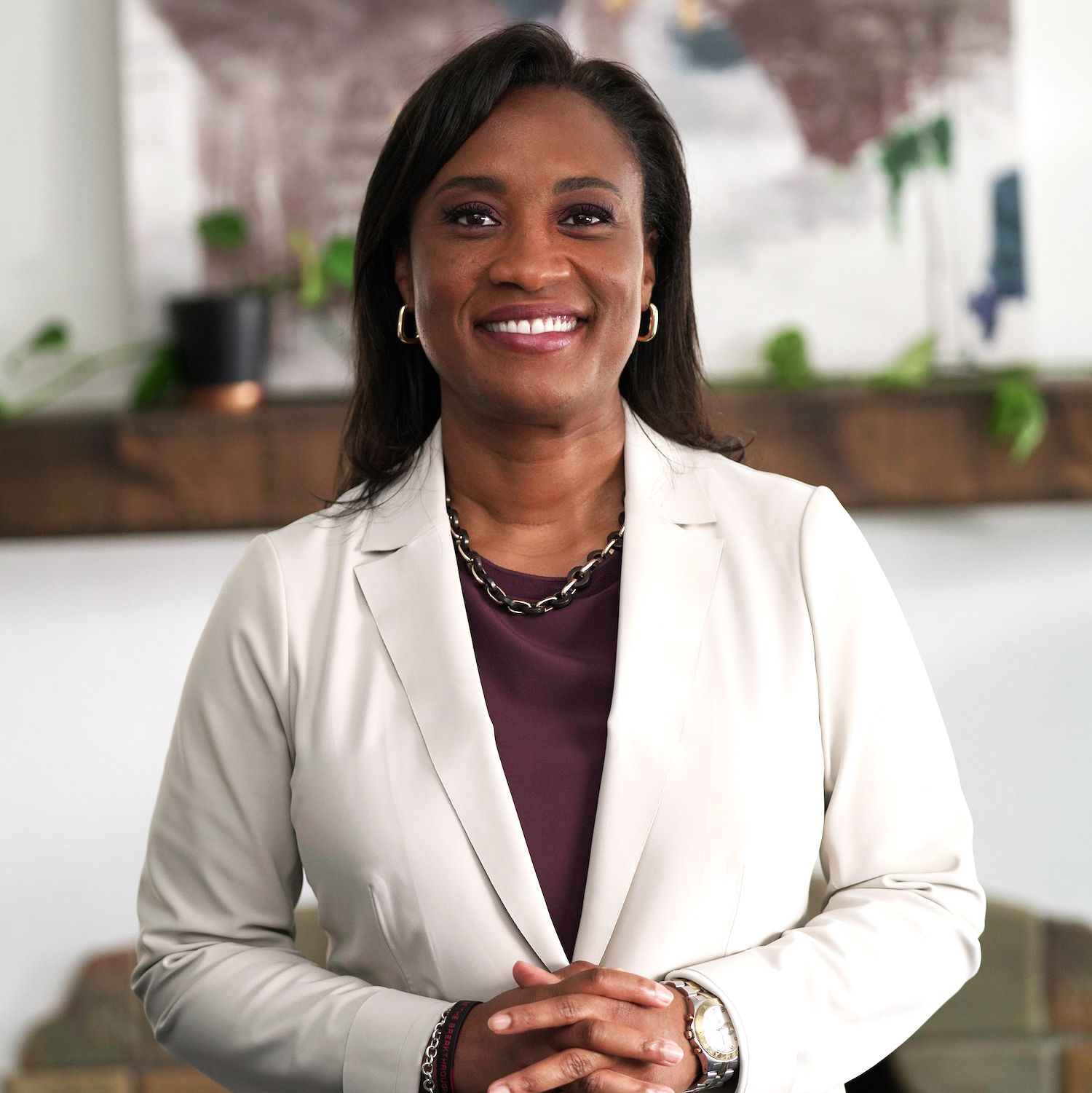 EMILY's List President Laphonza Butler Has Big Plans for the Organization
EMILY's List President Laphonza Butler Has Big Plans for the OrganizationUnder Butler's leadership, the largest resource for women in politics aims to expand Black political power and become more accessible for candidates across the nation.
By Rachel Epstein
-
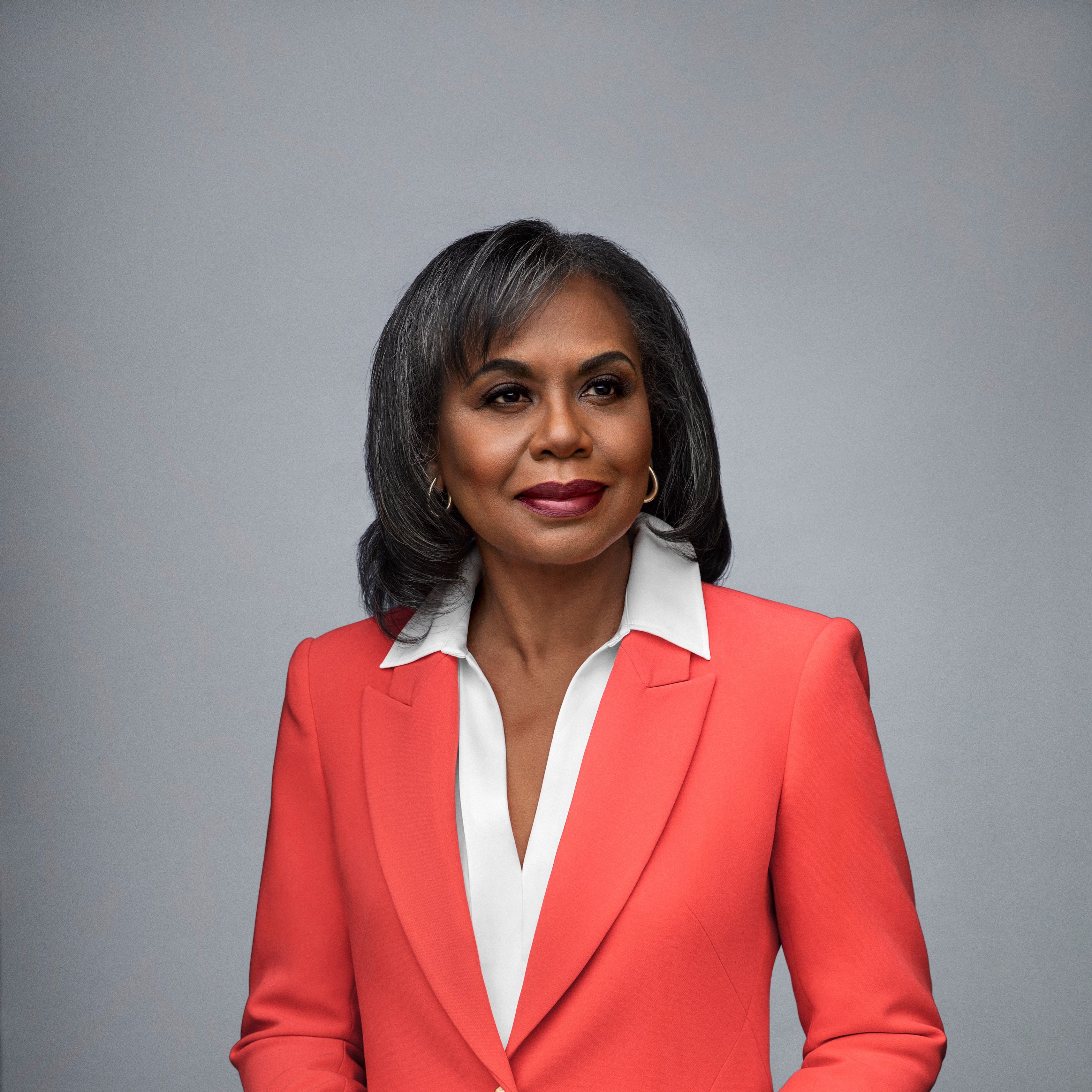 Anita Hill Believes We Can End Gender Violence
Anita Hill Believes We Can End Gender ViolenceThree decades after her landmark testimony in the Clarence Thomas confirmation hearings, the esteemed professor and lawyer has a message for leaders: The time is now to prioritize anti-gender violence policies.
By Rachel Epstein
-
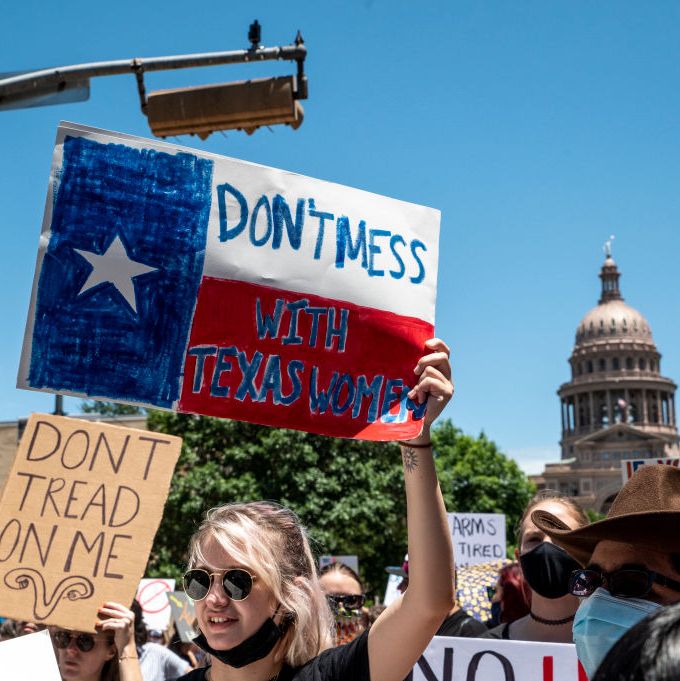 Want to Fight for Abortion Rights in Texas? Raise Your Voice to State Legislators
Want to Fight for Abortion Rights in Texas? Raise Your Voice to State LegislatorsEmily Cain, executive director of EMILY's List and and former Minority Leader in Maine, says that to stop the assault on reproductive rights, we need to start demanding more from our state legislatures.
By Emily Cain
-
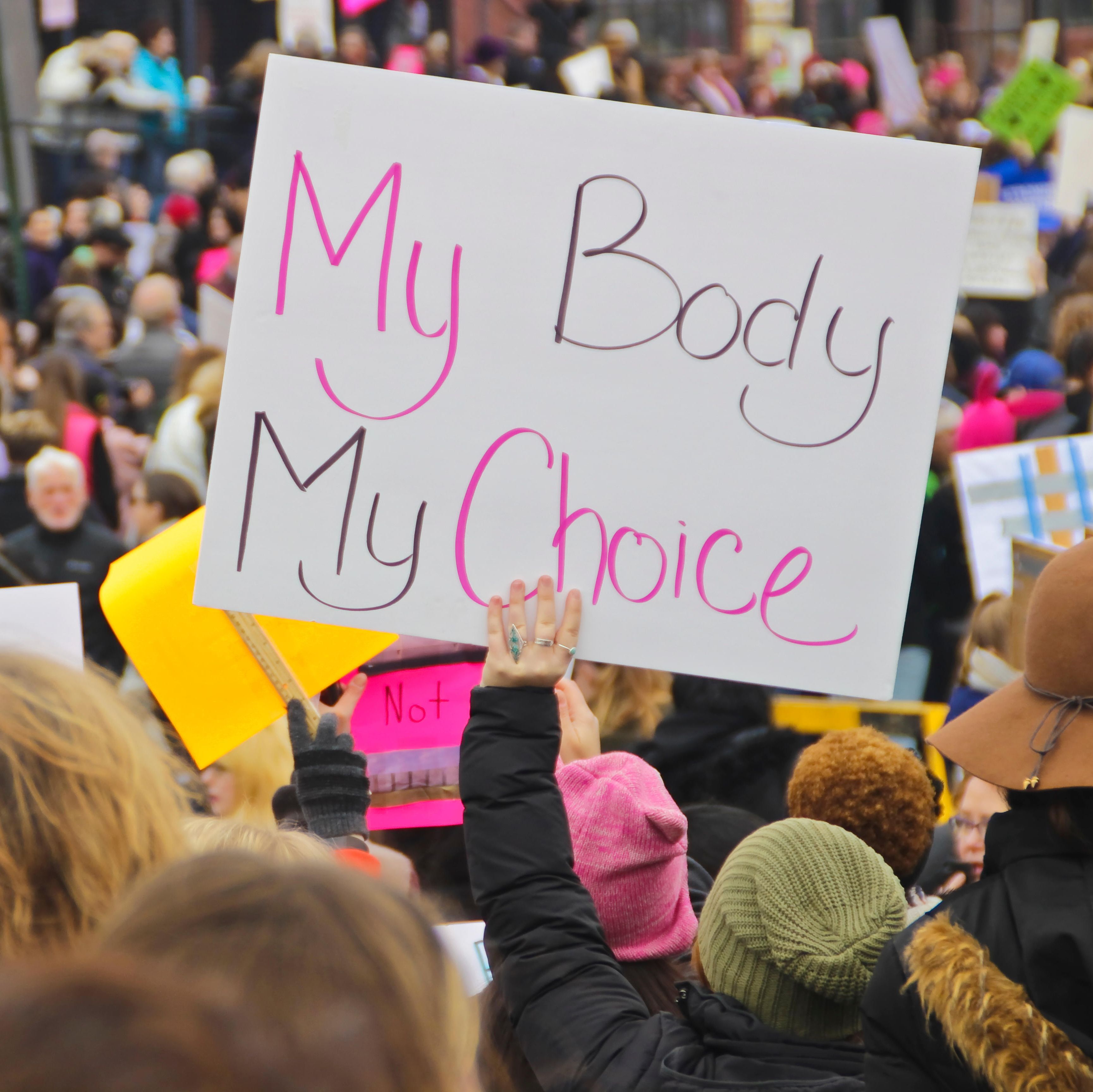 Your Abortion Questions, Answered
Your Abortion Questions, AnsweredHere, MC debunks common abortion myths you may be increasingly hearing since Texas' near-total abortion ban went into effect.
By Rachel Epstein
